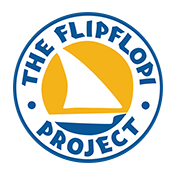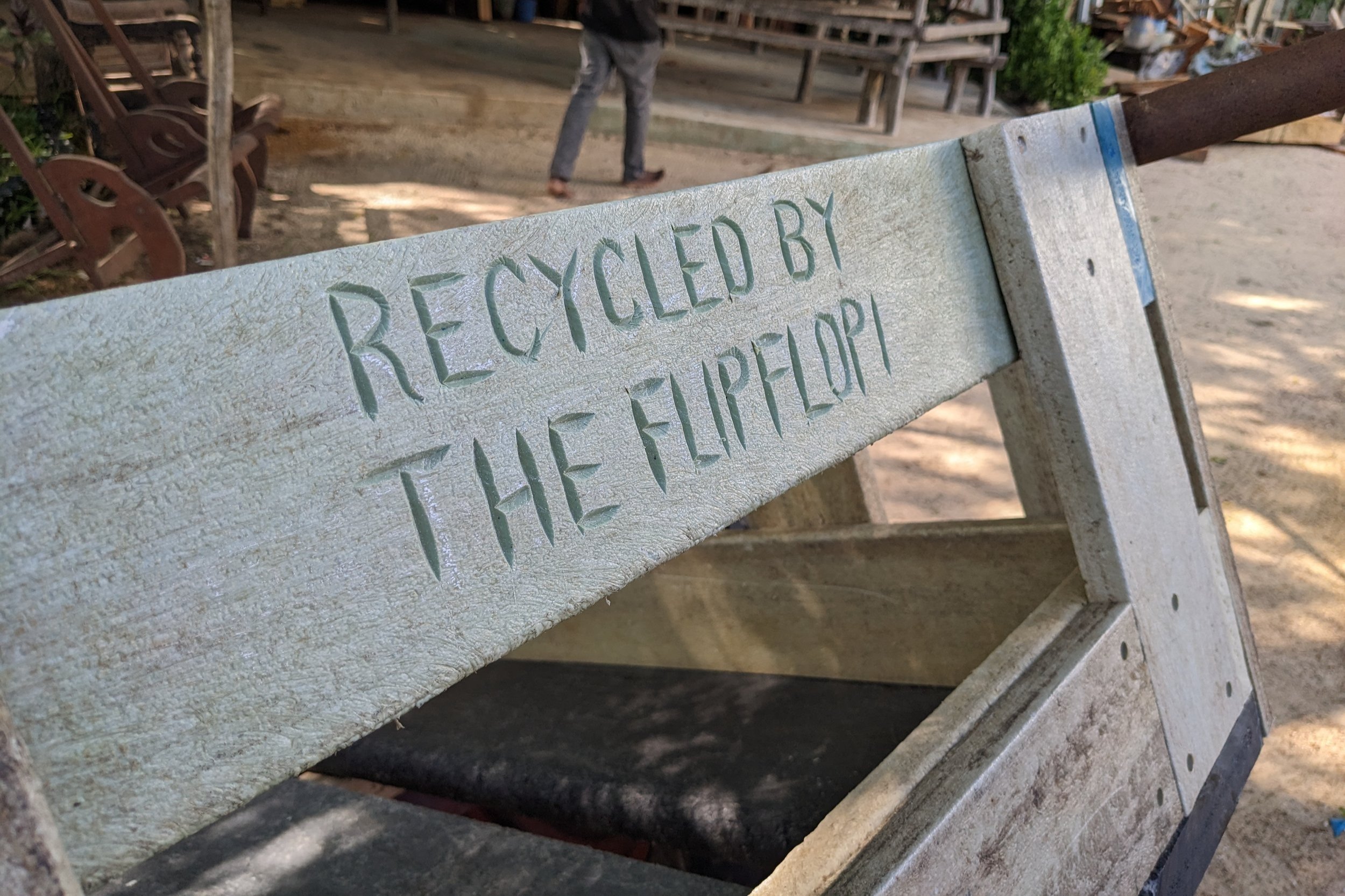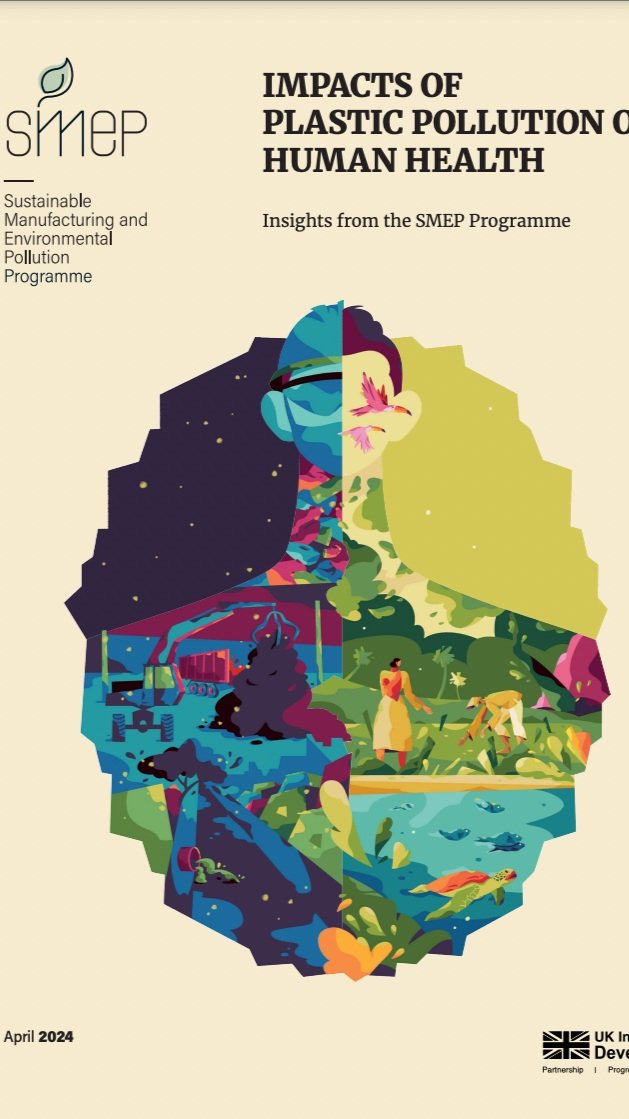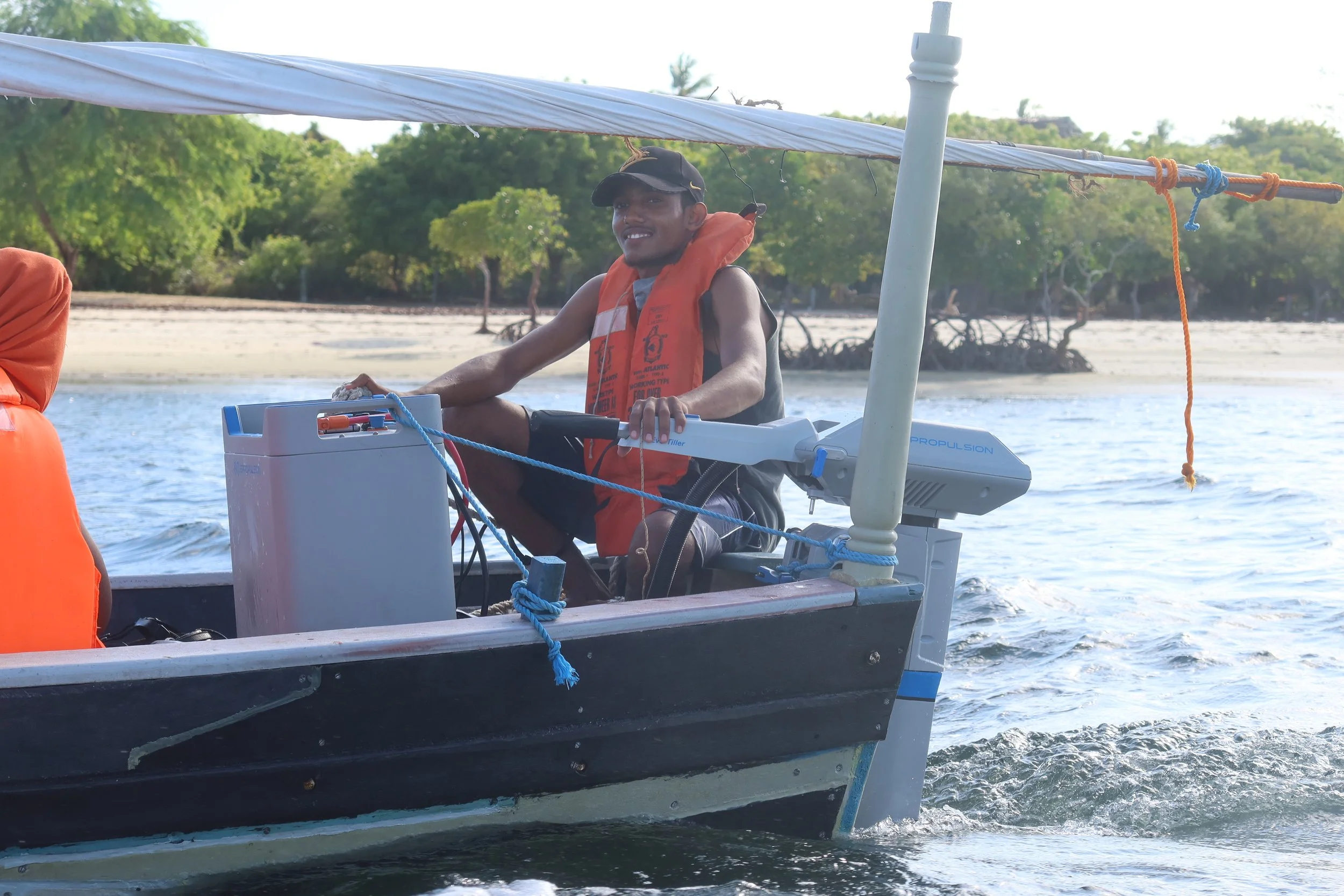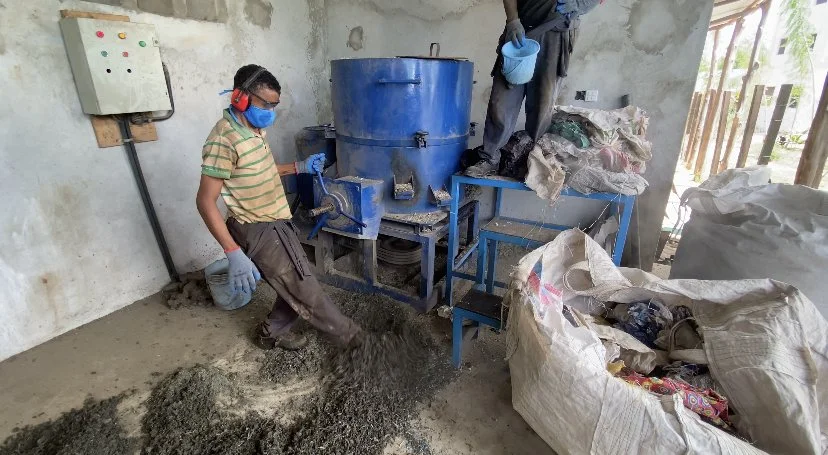Pioneering a community-led circular model across the Lamu Archipelago, Kenya
We are establishing sustainable solutions to avoid plastic pollution through community-driven circular solutions rooted in local heritage bringing economic returns to the community
THE PROBLEM
Plastic leakage into the environment is set to double to 44 million tonnes a year, disproportionately impacting the global south.
Annually in Kenya, 428,000 tonnes of plastic waste is uncollected or improperly disposed of while 37,000 tonnes leaks into the ocean. With waste generation projected to skyrocket up to 40% for LMICs by 2050, the disproportionate burden on low-income communities is likely to escalate beyond control.
Like many shoreline communities, the Lamu Archipelago lacks formal waste structures, systems, and policies. Our own 2022 baseline survey showed that the majority of plastic waste was dumped (45.9%), burned (39.8%) and buried (17.1%).
If sustainable waste management systems are not put in place now, the burden, particularly on shoreline communities like ours will be impossible to address.
“Structural inequities built into the current plastics value chain not only distribute the burdens of plastic pollution unequally among countries, the burdens are also disproportionately borne by those least equipped to remedy them, thereby worsening the crisis.”
THE SOLUTION
A community-centred plastics value chain with on-site research, innovation and a training centre.
The Flipflopi Project uses a systemic approach to build working replicable models for the circularity of plastics in peri-urban areas that have little-to-no waste management and rapidly growing populations.
We are pioneering the community-centred approach across the Lamu Archipelago, Kenya, localising recycling and culturally-relevant production for income generation for the local community, building skills through vocational training, while advocating for the elimination of single-use plastics at a local and regional level.
COMMUNITY-LED PLASTIC RECOVERY
We incentivise plastic waste recovery through a community-led cash-on-collections model.
Our Material Recovery Facility (MRF) serves the entire archipelago, creating networks and systems co-designed by our communities. We are trialling different models from household collection to incentivised recovery programs while working closely with government and international partners to establish the foundations to avoid recyclable plastics ending up in the environment, burnt or discarded in the ocean. Since our programme began, surveys highlight a significant reduction of plastics in dumpsites, as well as a marked reduction in GHG emissions.
If you’d like to visit our facility in Lamu and witness our model first-hand we offer factory tours, sunset sails and an opportunity to carve with our team of heritage carvers. For more information, click here.
SUSTAINABLE PRODUCT MANUFACTURING
Skilled artisans transform recycled plastic lumber into beautiful and durable heritage furniture and artisanal boats. Through this localised circular economy approach, we aim to subsidize waste management in peri-urban shoreline communities while also preserving the ancient indigenous craftsmanship that is in danger of dying out. Since 2022 we have prototyped over 40 unique products and are preparing for the market. Efforts to increase our financial sustainability, improve efficiency and identify opportunities for peer learning are continually being explored.
Check out our furniture designs below.
PLASTIC RECOVERY AND RECYCLING FACILITY
With a throughout capacity of 2 tons a day currently (sorting, washing, crushing and extrusion), our facility has been designed as a test-to-transition model backed by robust data-management systems and our R&D team who are continuously developing appropriate technologies and systems to improve efficiency and quality.
We have now stabilised our operations producing high quality plastic planks from HDPE and PP and now working towards increasing the range of polymers to produce useful building materials like plastic sheets.
INNOVATION AND TRAINING CENTRE
Our manufacturing facility is coupled to a Training Centre (including an accredited course with the Lamu County Polytechnic) which runs regular courses to prepare youth to enter into the circular economy industry, while fostering indigenous practices such as dhow-building and furniture-making. There is significant potential given our continent’s inherent reuse and repair culture while also addressing education gaps and preserving indigenous craftsmanship.
Learn more about our educational activities below.
LOCAL POLICY ENGAGEMENT
A full-systems approach requires legislative action. Flipflopi regularly participates in policy development with the local government and leads efforts towards harmonisation of regional policy in the East African Community.
Learn more about our advocacy work below.
Flipflopi x CMA CGM: An initiative to remove plastic, reduce waste and restore mangroves in Siyu, Pate Island
The initiative is taking place in Siyu - a gazetted historical site dating back to the 15th century on Pate island. Home to approx ~3000 acres of mangrove forest, this remote island receives plastics from across the world.
We have partnered with CMA CGM to conduct regular mangrove clean-ups, set up a household collection scheme ensuring all recovered plastics are recycled or managed appropriately and have also set up a mangrove nursery to restore damaged forests.
OUR MODEL IN ACTION
We have been pioneering this innovative model since 2022, and seeing the potential for replicability in other remote shoreline communities.
Environmental Impact
To-date we have recovered ~300 tonnes of post-consumer plastic that would otherwise have been destined for the ocean, with 268+ tonnes of co2 emissions avoided.
Social Impact
Social surveys have shown well-being and livelihood improvements for employees and collectors.
A recent UNCTAD and UK-FCDO study showed our model as having a remarkable impact on health with a projected life gain up to 24 years for every 1000 tons that is recovered and turned into useful long-lasting materials like our artisanal boats. The study also factored in the health and environmental risks that come with recycling.
Our team is approximately 50% women including training some of Lamu’s first female carpenters and boat builders.
RELEVANT PUBLICATIONS
Circular Economy, Newcastle University
This paper shows that novel marine design approaches, such as implementing a circular economy approach at a local scale, is effective in responding to global environmental crises such as plastic pollution. Whilst this process can be used for replacing timber in many applications, the iconic design of a traditional sailing dhow is a powerful tool that impacts on community, enterprise and engagement for environmental sustainability.
UNCTAD Health Study
“When plastic pollution is said to affect our health, we usually pay attention. But that burden is not easy to quantify in the most precious currency: time of life lost. Depending on the case and context, up to 24 years of healthy life can be collectively gained for every 1000 tons of plastic material that is recovered and turned into useful materials. Flipflopi’s model ranked as having the highest health gain amongst all the projects that were assessed when applied in a context like ours.
Routledge Handbook of Archaeology and Plastics
The Flipflopi illustrates the viability of using ocean-bound plastics to develop solutions using traditional and local knowledge. Combining this success with a community-based waste management system, the Flipflopi Project has established a Recycling and Heritage Boat Building Training Centre to design and construct recycled plastic sailing vessels and other products rooted in heritage based on indigenous knowledge and skills.
Plastics management and recycling amid global governance change
Control measures applicable to plastics are being discussed as one of the main tools for a legally binding instrument on plastic pollution, including in the marine environment. A detailed survey was undertaken of The SMEP Programme grantees including Flipflopi on how these control measures may help or hinder models, providing interesting and timely insights.
